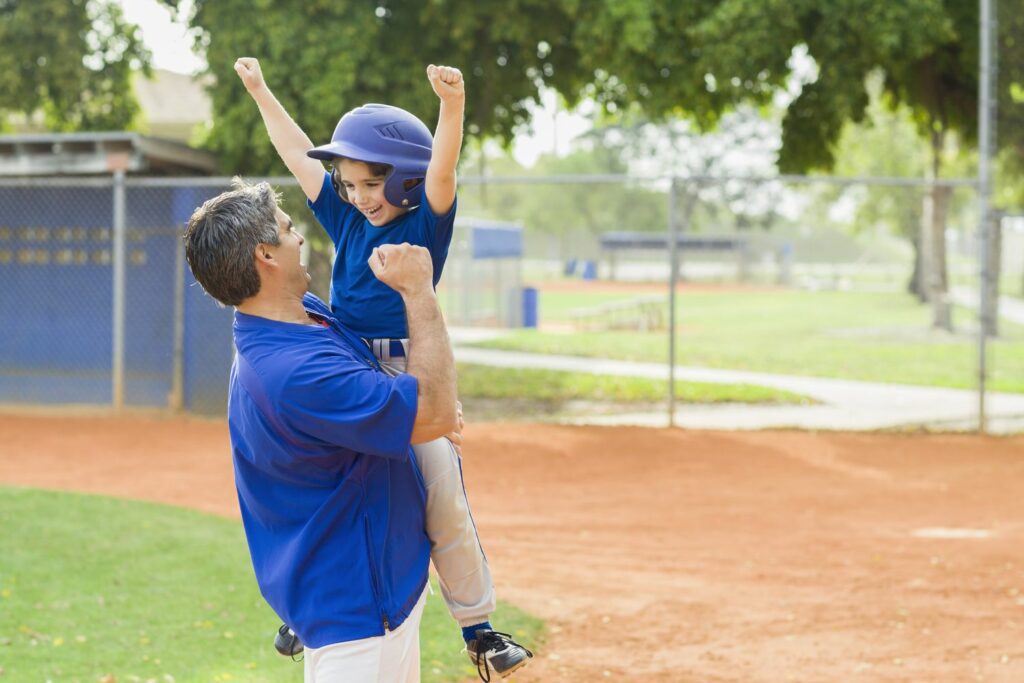If you have an athlete in your family who loves their sport, loves to compete, and loves to win, you may feel unsure of how to handle their competitive spirit. Being strongly competitive means a kid plays hard, takes the game seriously, and hates to lose. These are all good traits for an athlete, but many competitive kids also tend to be extremely hard on themselves. If your child is one of those who takes competition very seriously, you’ve seen them beat up on themselves.
After 20 years of being a sports mom, I’ve learned that there’s nothing to be done about toning down an athlete’s competitive nature. However, you can keep from aggravating their personal frustration by avoiding these mistakes:
Do not force consoling hugs on your athlete after a bad game
I’ve tried this one too many times and know just how bad it hurts to get brushed off. Don’t sweat it, though. Your athlete is not rejecting you, they just aren’t in a hugging mood.
Do not make light your athlete’s failures
A competitive athlete won’t be receptive when they are upset about their performance. Let me add here that each child is different, and there are surely some who can separate competition and life thereafter. That, however, is not the case in my family.
As a high school junior, my daughter was extremely unhappy after a volleyball game that ended on a poor note. There was no communication on the car ride home, and we gave her time to process her anger and frustration when we got there. She still wasn’t ready to discuss the game, but her mood was at least improved. Sometimes the best thing you can do as your athlete stews over their game is to give them space and let them move on from it by themselves.
Do not point out the obvious right after your athlete’s bad game
Give your kids some credit. Chances are—especially if they are teenagers—that they already know what they did wrong.
If they don’t, there will come a time when they may ask for your opinion and help. Until then, let their coach do the critiquing. Even if your athlete is younger, it is better to look for a time when they are really listening to your instruction and/or advise. Maybe later that day as you play in the backyard, or as you watch a game together on TV, but always try to avoid compounding frustrations immediately after competition.
Never ignore your athlete’s failures altogether
Sooner or later, a discussion about your athlete’s tendency to be hard on themselves will organically arise. Take advantage of those moments when your child is in a receptive mood or when they bring up the subject of their frustration. Encourage them to have a short-term memory when it comes to failure, but to never overlook the value in learning from it.
Learning to quickly move on from failure is easier said than done, but it is an essential skill for young athletes to master. Remind them that all athletes go through slumps. True competitors fight through those slumps and come out stronger because of them. Present your athlete with opportunities to improve upon their weaknesses—whether that’s finding them a private coach or just running drills with them yourself—and make yourself an ever-available outlet for their frustrations. Help your athlete understand that instead of beating themselves up when they struggle, they should push themselves to learn and improve. Our job as parents is to listen, support, cheer, challenge, and sometimes just be willing to back off.

CoachUp is the safest and easiest way to find a coach for personalized training. With our 100% money-back guarantee and vetted coaches, anyone can achieve their full athletic potential. Find your perfect coach today and become the athlete you want to be!
How useful was this post?
Click on a star to rate it!
Average rating 4.7 / 5. Vote count: 12
No votes so far! Be the first to rate this post.




3 Responses
I have been recommending that process to Everyone, including Players, Family and Friends for 30 years.
I teach basketball 🏀 to male and female players of all ages.
This is great information! Thank you for sharing!
Granddaughter plays elite water polo. Very competitive, but a great team player as well ( not critical of teammates, etc). Works hard but seem to have a great attitude. Good advice on the aftermath of bad games.
Her mother, my daughter, was a swimmer, and was a bit hard on herself, so I’m glad to see she has not passed that down to her daughter